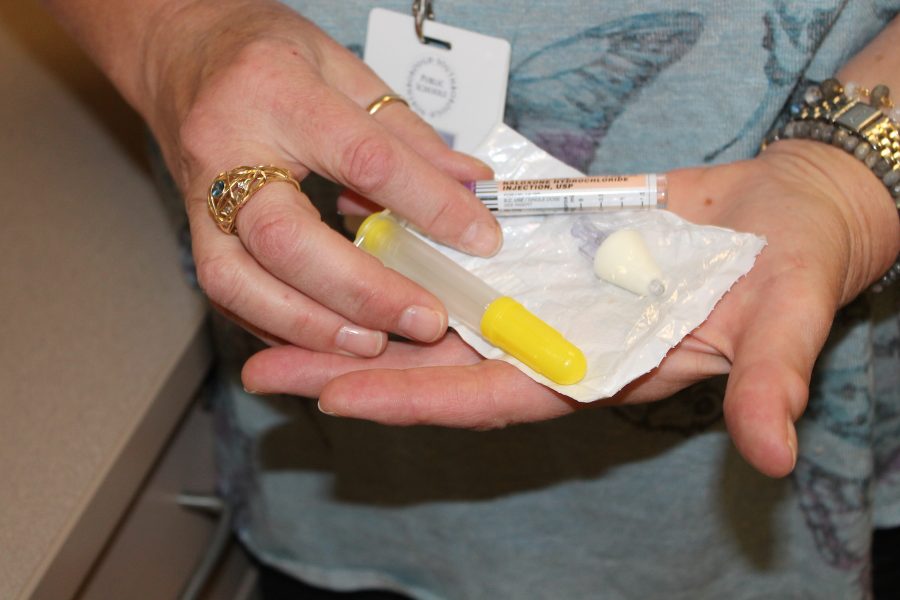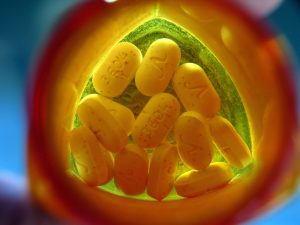Medical officials push for increased awarness of opioid overdoses
School nurse, Justine Fishman, demonstrates the Narcan injection.
May 10, 2016
Due to rapidly increasing rates of opioid overdoses, medical officials around Massachusetts are raising awareness about overdose prevention and taking precautions to halt the opioid epidemic through education and addiction treatment programs.
According to the Centers for Disease Control and Prevention (CDC) website, the number of deaths due to opioid overdose have nearly quadrupled since 1999.
“You have more people dying of opioid overdose every day than you have dying in car accidents,” Chief Medical Officer of Spectrum Health Systems, Dr. Jeff Baxter, said.
Baxter specializes in addiction medicine at Spectrum, a large addiction treatment provider based at twelve locations throughout Massachusetts. The headquarters clinic is based in Worcester and sees over 1500 patients seeking addiction treatment daily.
According to Baxter, in the 1990s, a medical push for more pain relieving medicine triggered the development of Oxycontin, a powerful opioid painkiller that is highly abused and can lead to the use of other opioids. Baxter believes the spike in overdose deaths is partially due to the availability of Oxycontin.
According to the CDC, over a quarter billion opioid prescriptions were written in 2013, enough to supply every American adult with a bottle of pills. With more availability of prescription opioids, Baxter says teenagers are more likely to abuse these drugs.
“Young people will take [opioids] from medicine cabinets, get them from their grandma, get them from their neighbors, bring them to parties, and abuse them for the high,” Baxter said. “What they don’t realize is that if you do that for a couple of weeks, your body actually gets used to them. You get physically dependent on them, and when you take them away you get sick. They get physically addicted before they know what’s happening.”
“If somebody gets addicted to opioids, even if they want help, even if they’re trying to get clean, [addiction] is not an easy thing to kick,” school nurse Justine Fishman said.
With death rates due to overdoses on the rise and spikes in abuse in young people, many precautions are being taken to halt the epidemic. Addiction treatment is need-based and focuses on whether patients are physically dependent at the time of their treatment. Treatment can include medication and addiction therapy along with physical rehabilitation.
To prevent overdosing in the school, this year nurses have been equipped with a nasal injections called Narcan that serves as an opioid antagonist.
“It’s a common drug… As nurses we’ve always been licensed to administer [Narcan] under prescription, but this is the first year that we’ve had it in the school as a standing order and a rescue medication,” Fishman said.
Narcan has become more commonly available in an effort to halt the growing number of opioid overdoses.
“You used to have to have a prescription, but now you can walk into [a pharmacy] and purchase Narcan to carry on yourself to administer to a friend, family member, or someone you’re concerned about,” school nurse Stacey Calabrese said.
“[Administering Narcan] is easy enough to do and it can save someone’s life,” Fishman said. “If it’s an opioid that they’re overdosing on, [Narcan] is going to help bring them out of it and give them another chance at recovery.”












